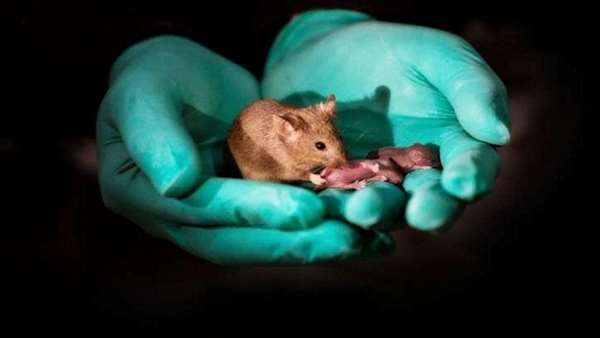Scientists in China engineer baby mice from same-sex parents
Using a new genetic engineering method, scientists in China have birthed healthy baby mice using the DNA of two same-sex parents. Born without defects, the fatherless mice developed normally and went on to produce healthy offspring.
Using a new genetic engineering method, scientists in China have birthed healthy baby mice using the DNA of two same-sex parents. Born without defects, the fatherless mice developed normally and went on to produce healthy offspring.
"We were interested in the question of why mammals can only undergo sexual reproduction," Qi Zhou, researcher at the Chinese Academy of Sciences, said in a news releases. "We tried to find out whether normal mice with two female parents, or even mice with two male parents, could be produced using haploid embryonic stem cells with gene deletions."
A genetic mechanism called genomic imprinting enables sexual reproduction in mammals but thwarts same-sex reproduction. By silencing certain genes, genomic imprinting helps genetic material in eggs and sperm effectively combine.
But when DNA from a mom and dad are not present, the genomic imprinting mechanism disrupts the process of genetic recombination, which can cause developmental abnormalities and defects.
Scientists have previously produced offspring from two female mice by deleting genomic imprinting genes.
"However, the generated mice still showed defective features, and the method itself is very impractical and hard to use," said Zhou.
Zhou and his colleagues developed a new technique using haploid embryonic stem cells, stem cells with half of the usual number of chromosomes. Haploid embryonic stem cells feature half the number of genomic imprinting genes.
"We found in this study that haploid ESCs were more similar to primordial germ cells, the precursors of eggs and sperm. The genomic imprinting that"s found in gametes was "erased,"" said researcher Baoyang Hu.
Scientists inserted the modified haploid ESCs into a normal mouse eggs, yielding an embryos, which were implanted in a surrogate mice. The experiment was successful but inefficient __ 209 embryos produced 29 healthy pups.
Attempts to produce mice pups with two dads yielded two babies __ from 500 embryos __ but both died within 48 hours.
Researchers described their experiments Thursday in the journal Cell Stem Cell.
"This research shows us what"s possible," said researcher Wei Li. "We saw that the defects in bimaternal mice can be eliminated and that bipaternal reproduction barriers in mammals can also be crossed through imprinting modification. We also revealed some of the most important imprinted regions that hinder the development of mice with same sex parents, which are also interesting for studying genomic imprinting and animal cloning."





ارسال به دوستان